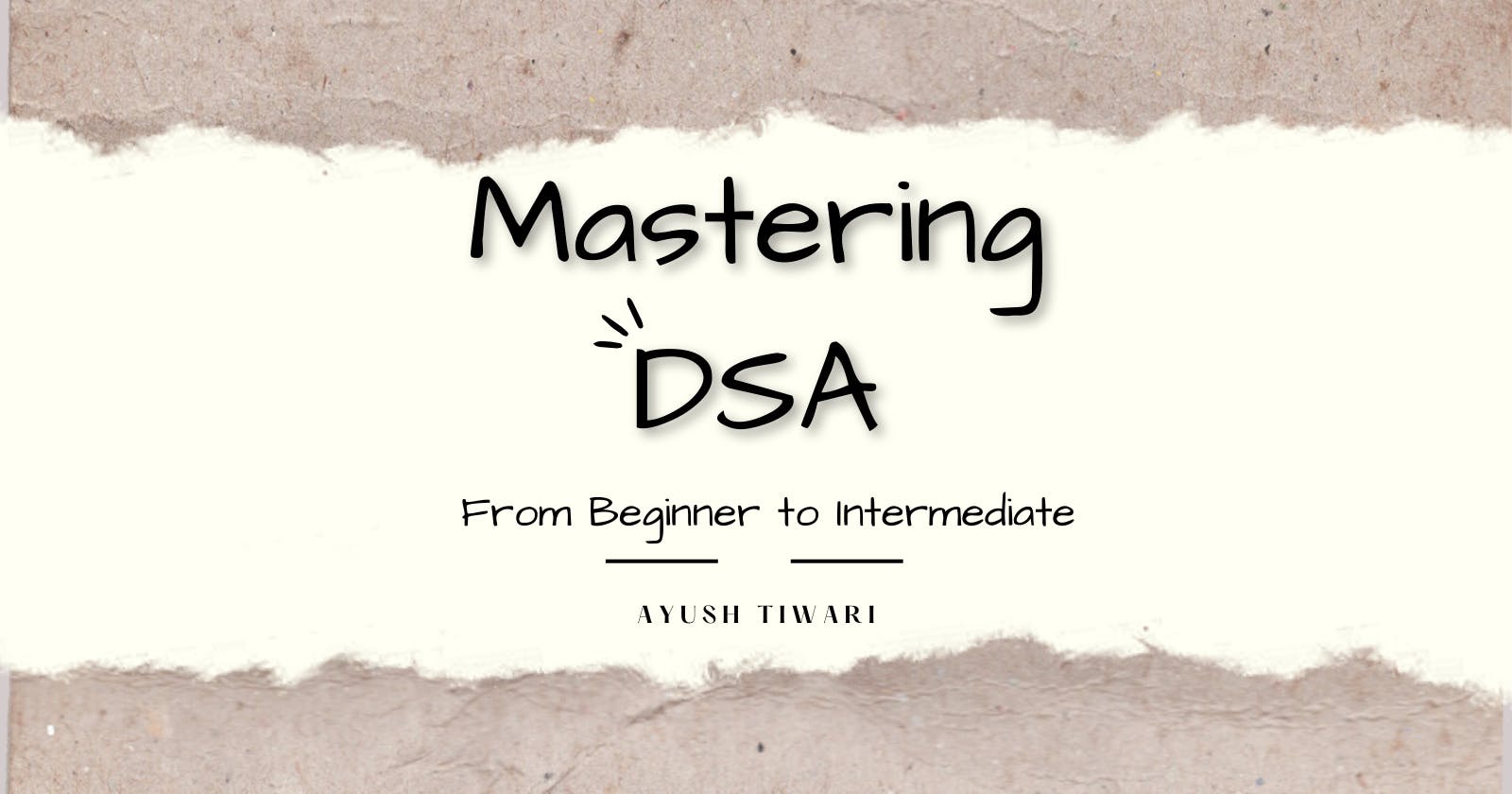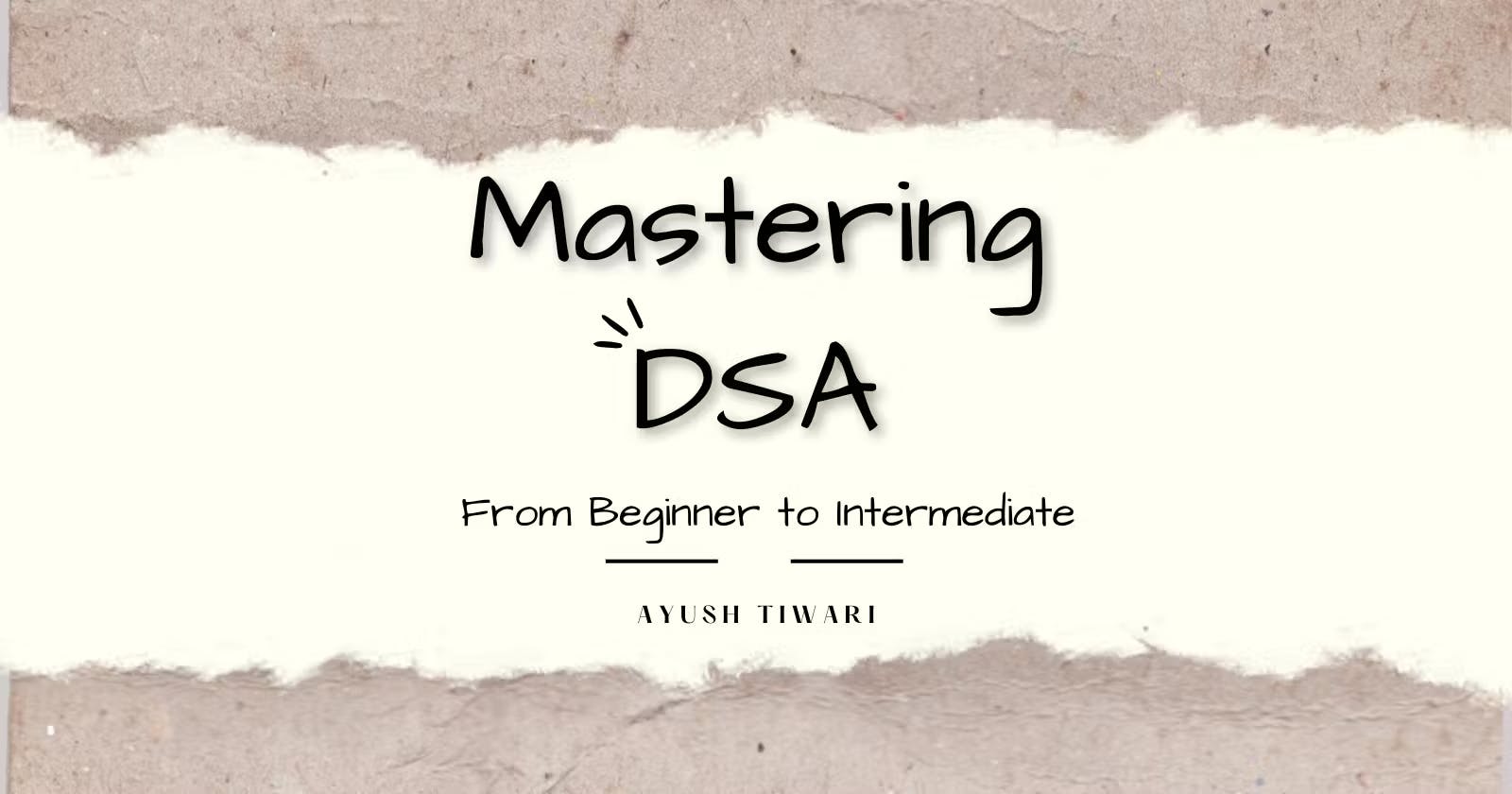
Hello folks, this isn't your typical DSA roadmap; instead, I'm here to share my personal approach to learning and practicing DSA daily in an efficient manner. The goal? To cover all the essential topics, algorithms, and data structures while ensuring a thorough revision of each. So, buckle up, as I guide you through my method that blends learning, daily practice, and strategic revision for a comprehensive DSA mastery journey.
Let me first tell you why learning DSA is important ?
Learning DSA enhances your problem-solving skills.
It aids in understanding and optimising complexity when transitioning to development.
During placements, the initial filter is often a problem-solving test. Even if you excel in development, lacking solid problem-solving skills can be a roadblock.
Every company operates with its framework. Even if you're adept at something like React, a strong problem-solving skill set becomes a distinguishing factor. (And don't get me wrong, development is immensely valuable; it deepens your understanding of various topics like API, networking, and databases, making it easier to grasp new concepts swiftly.)
Daily Questions:
You need to solve only 2 question daily so that you can get time for other things also, let me tell what 2 questions you should choose every day :
Problem of the Day
Platform - GeeksForGeeks or Leetcode , anyone you are comfortable at.
Why? Because this routine helps you cover every single topic, ensuring you explore various new concepts along the way.
Use Separate notebook for these problems.
In this notebook , Write the question , sample input output.
Document every approach you encounter while working on the problem, noting their complexities.
Take your time with each question; avoid rushing to the discussion section.
After submitting your solution, spend some time in the discussion section to learn about various approaches to the same question.
This not only broadens your understanding but also exposes you to diverse problem-solving strategies.
Choose a topic
Choose any one topic at a time like two pointer, Sliding window, recursion , Dynamic programming, stack, queue, Binary tree etc.
Why? Because this approach allows you to gradually master each topic in-depth.
Take sliding window, for instance. Learn all the theory surrounding this topic—conduct dry runs, understand complexities, and note when to apply it. Use a separate notebook for this, and go into as much detail as you can.
Resources: Turn to YouTube channels like: Aditya verma, Pepcoding, Love babbar, takeuforward etc.
Once you've absorbed the theory, practice. Aim to solve 10 to 20 questions on the chosen topic until you feel confident. Utilize resources like Striver's sheet or specific playlists on YouTube
When tackling questions, resist the urge to immediately check the discussion or watch video lectures. Try solving them independently first.
After solving, document the complexities, approaches, and insights gained in your notebook. This not only solidifies your understanding but creates a valuable reference for future problem-solving endeavours.
Revision
Don't skip revision at all , this will solidify your learning.
Take 15 - 20 minutes to revise the question or topic you solved 1 week ago.
Try to submit the question again within a given time frame.
General Tips :
For beginners: Use GFG because it has goodies on solving POTD which can motivate you to be consistent.
Use a timer for every question and don't spend too much time on a single one, especially if you haven't studied that method before.
Consistency and discipline >>> motivation. Show up daily, even on days when it feels less enjoyable, because it will undoubtedly yield results in the future.
If you have less time on a particular day try to prioritise POTD.
Remember this mantra - Practice Practice Practice.
Happy coding !!!
